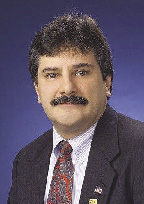Heaven helps us but somehow, someway we're back here again. Just when it looked like there would be some period of financial stability which would open the door for overall growth and an improved jobs picture, we're not.
The stock market is back on the volatile roller coaster ride of wild swings up and down. Meanwhile politicians are more interested in partisan bickering designed to affect the outcome of the next presidential election and countries across the globe are in debt up to their eyeballs. Apparently we've learned nothing from 2008.
With all of this "recession" is now on every pundit's lips and the idea that a double dip could be in the offing is becoming more realistic. The only bright spot in all of the nonsense is that interest rates did not go up one iota. Despite the downgrading of U.S. debt by one rating agency, interest rates just laid there. That's a good thing and the silver lining for the future of real estate and for Connecticut's and New England's economy.
It appears most people were blinded by the stock market run up as a sign that things were on the mend. At the same time as companies cut payrolls, reduced operating costs and drove up stores of cash the real estate market remained for all intents and purposes dead on its feet.
So while everyone was happy to see the value of their 401K recover the fact is that the fundamental driver of true economic health had not recovered at all. Real estate, both commercial and residential by analogy is like the base player in the band. It's that steady rhythmic beat that keeps all the other instruments on course and many times is the primary driver of the music.
A great base player can make a mediocre band sound great. Conversely a poor base player can drag a great band down and can simply kill a mediocre one. That's exactly what is happening to us with the economy. Our poor real estate market is killing our mediocre economy.
If we are to have a solid recovery then we have to get the real estate market out of the morgue. As has been proven time and time again nothing creates wealth or improves the jobs picture better than the sale of property.
When a home sells every tumbler in the economy clicks. Revenues are generated in retail, governmental (taxes), the trades and the service industries. Everybody plays a role and every sector is affected.
It's no different on the commercial side. Commercial growth can be spawned by the addition of new businesses or by expansion of existing businesses. Either way they form a foundation of extended economic development by adding workers. Workers, who in turn buy homes, spend locally and pay taxes. And the wheel goes around and around.
Real estate has always meant value, wealth and power. The fundamental nature of its value is unmistaken. In the most recent biography of George Washington, Washington: A Life (Penguin Press, Oct. 2010), author Ron Chernow repeatedly refers to our first President's absolute fixation with real estate. From his earliest days in the French & Indian Wars right up to his death in 1799 the "Father of our Country" recognized the value of land and the role it played in the fledgling economy of the U.S.
Somehow since 2008 we've lost that understanding. Yes, everyone recognizes that real estate is flat but somehow there has been a misguided belief that we will fully recover without a recovered and healthy real estate market. That's just not going to happen.
As political, community and private industry leaders focus on how we can finally turn our economy and more importantly the jobs market around they must return to the discussion of real estate.
We have to encourage home ownership without lowering standards that over extend individuals and artificially drive up home values. Commercially we need to encourage companies that have amassed cash during the downturn to consider expansion and/or the conversion to "Green" facilities by incenting the construction and use of LEAD Certified buildings.
Incentives have to be meaningful and long lasting but not based on gimmicks and they must encourage long term investment as opposed to the short term flip. A recovered real estate market needs to be sustainable and cannot be subject to the same volatility as the stock market.
In short we need that great, smooth and dependable "Base Player" for the economy's band plugged in and ready to play. Let's hope we see it soon.
Michael Nicastro is president and CEO of Central Connecticut Chambers of Commerce. M.Nicastro@CentralCTChambers.org
Tags:
Commercial and residential real estate - The base player of the economy's band
August 18, 2011 - Connecticut









